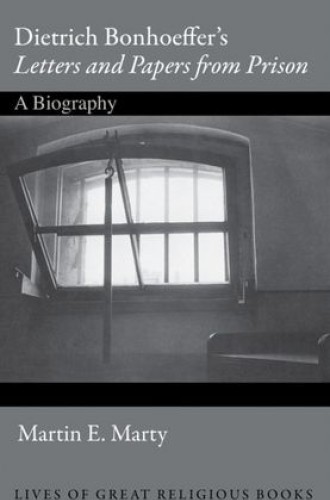Dietrich Bonhoeffer’s Letters and Papers from Prison, by Martin E. Marty
Though some of his admirers may find it difficult to believe now, Dietrich Bonhoeffer was not widely known in the years immediately following World War II, save perhaps as one of a band of courageous pastors and theologians in Germany who resisted the Nazi regime of Adolf Hitler. His relative anonymity came to an end virtually overnight with the publication of a collection of his letters and other papers that had been smuggled out of the prison where he had been confined on suspicion of crimes again the state. This correspondence contained a series of provocative notions about the world and the church that generated wave after wave of enthusiastic response, conferring on their author a celebrity (or, for some, a notoriety) that had not been his during his relatively short lifetime. Today, 60 years after the first edition of Letters and Papers from Prison appeared, this unusual book, written by an unusual kind of theologian, continues to fascinate new generations of readers.
Thanks to Martin Marty and the Lives of Great Religious Books series published by Princeton University Press, the story of the origin, interpretation and influence of Letters and Papers from Prison, long familiar to Bonhoeffer specialists, is now available to a wider public.
As Marty carefully documents, what caught the attention of readers were Bonhoeffer's radical thoughts about the future of Christianity in the postwar world, which appear late in the book. A world come of age that no longer needs the hypothesis of "God," religionless Christianity, and a this-worldly faith capable of living fully in the world etis deus non daretur—even if there were no God—these ideas captivated the attention of many for whom the old ideas and institutions of the church no longer seemed adequate. Combined with Bonhoeffer's struggle against tyranny and his tragic death, they earned for the book its status as a classic theological text of the 20th century.





